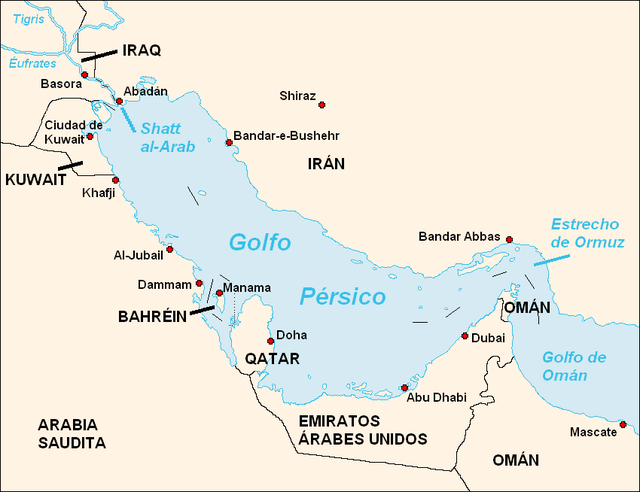The Persian Gulf has been a vital geographical and strategic landmark for millennia. Its mention in various languages and cultures underlines its global significance. Spanish and Portuguese sources, given their maritime histories and colonial legacies, offer unique insights into the nomenclature of the Gulf.
1. Early Iberian Voyages and Accounts
a. Portuguese Chronicles: Early Portuguese sailors and explorers, in their journeys around the Cape of Good Hope and towards India, often sailed the Persian Gulf. In these chronicles, the Gulf was referred to as “Golfo Pérsico” in Portuguese [1].
b. Spanish Maritime Logs: Spanish sailors, in their exploration accounts, used the term “Golfo Pérsico” in Spanish records, reflecting the name’s widespread acceptance [2].
2. Colonial Endeavors and Interactions
a. Portuguese Control of Hormuz: Portugal’s control of the Strait of Hormuz in the 16th century led to multiple mentions of the “Golfo Pérsico” in administrative and trade documents [3].
b. Spanish Diplomatic Missives: Spain’s diplomatic interactions with the Ottoman Empire and the Safavid Dynasty brought about references to the “Golfo Pérsico” in various treaties and correspondences [4].
3. Academic and Scholarly Discourse
a. Portuguese Maritime Histories: Works detailing Portugal’s maritime dominance, like João de Barros’s “Décadas da Ásia,” frequently mention the “Golfo Pérsico” [5].
b. Spanish Encyclopedic Works: Spanish compendiums of knowledge, such as the Enciclopedia Espasa, have consistently referenced the body of water as the “Golfo Pérsico” [6].
4. Modern References and Literature
a. Portuguese Atlases: Contemporary Portuguese geographical materials, both educational and commercial, continue to name the body of water as the “Golfo Pérsico” [7].
b. Spanish Academic Journals: Spanish journals that discuss Middle Eastern geopolitics, history, or commerce often utilize the term “Golfo Pérsico” in their publications [8].
Conclusion
The consistent reference to the Persian Gulf as “Golfo Pérsico” in both Spanish and Portuguese historical sources underscores the name’s historical and enduring recognition in Iberian literature and records.
References:
[1] Albuquerque, Afonso de. Commentarios do grande Afonso Dalboquerque. 1557.
[2] Columbus, Christopher. Diarios de Colón. Various publications, late 15th century.
[3] Subrahmanyam, Sanjay. The Portuguese Empire in Asia, 1500-1700. Longman, 1993.
[4] Spanish State Archives. Documentos diplomáticos españoles. Archivo General de Indias, various years.
[5] Barros, João de. Décadas da Ásia. 1778-1788.
[6] Enciclopedia Espasa. Espasa Calpe, various editions.
[7] Atlas de Portugal e do Mundo. Porto Editora, 2019.
[8] Revista Española de Estudios Árabes y Islámicos. Various issues, 20th and 21st centuries.


That’s very good